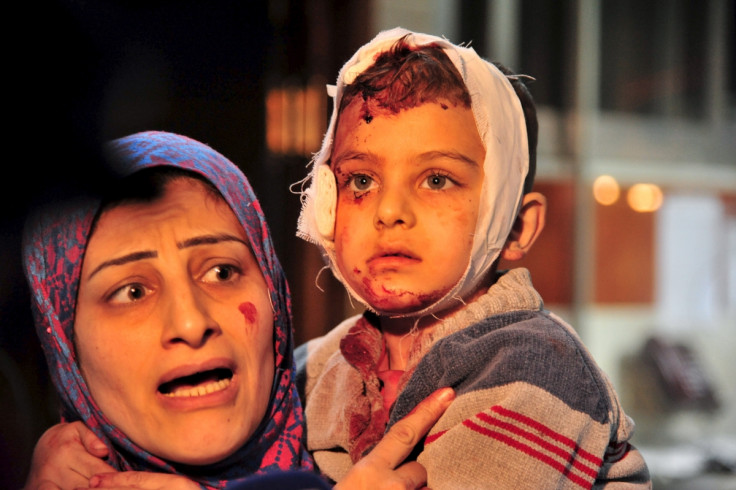Syria war: Turkey 'pessimistic' ceasefire announced for 27 February will hold

Turkey's deputy prime minister has questioned whether the ceasefire in neighbouring Syria due to begin Saturday 27 February will hold, insisting Turkey would continue to attack Kurds in Syria if their activities were thought to be a threat to the country's territorial integrity. Speaking to reporters in Ankara, Numan Kurtulmus said that although his government welcomed the truce, agreed by both the US and Russia, he was pessimistic about how long it could last.
"I welcome this truce, but I am not very optimistic that it will be respected by all the parties," said Kurtulmus. "We hope that no one will try and carry out air strikes and that no one is going to kill civilians during the ceasefire."
Speaking after a suicide bomb claimed by the Kurdistan Freedom Hawks (TAK) splinter group killed at least 28 people in Ankara, Kurtulmus said Turkey would return fire if the Syrian YPG fired into its territory. Turkey has accused Russia and the Kurds of working with the government of Syria's President Bashar al-Assad, and fears Kurds within Syria, Turkey and Iraq are attempting to create their own state in Turkey's backyard. Both Russia and the Kurds have denied the claims, but Western observers claim most Russian air strikes have targeted rebel groups in Syria rather than the Islamic State or Isis, the supposed common target of the Russians and the West.
Isis is one of the groups excluded from Saturday's ceasefire, along with the Nusra Front. Syria says it will decide which other groups will be excluded from the ceasefire. Syria's Opposition High Negotiations Committee (HNC) has also pledged to honour the truce. The ceasefire comes after five years of conflict which has left hundreds of thousands dead and millions of refugees displaced within Syria, in neighbouring countries including Turkey, and in Europe.
© Copyright IBTimes 2025. All rights reserved.






















